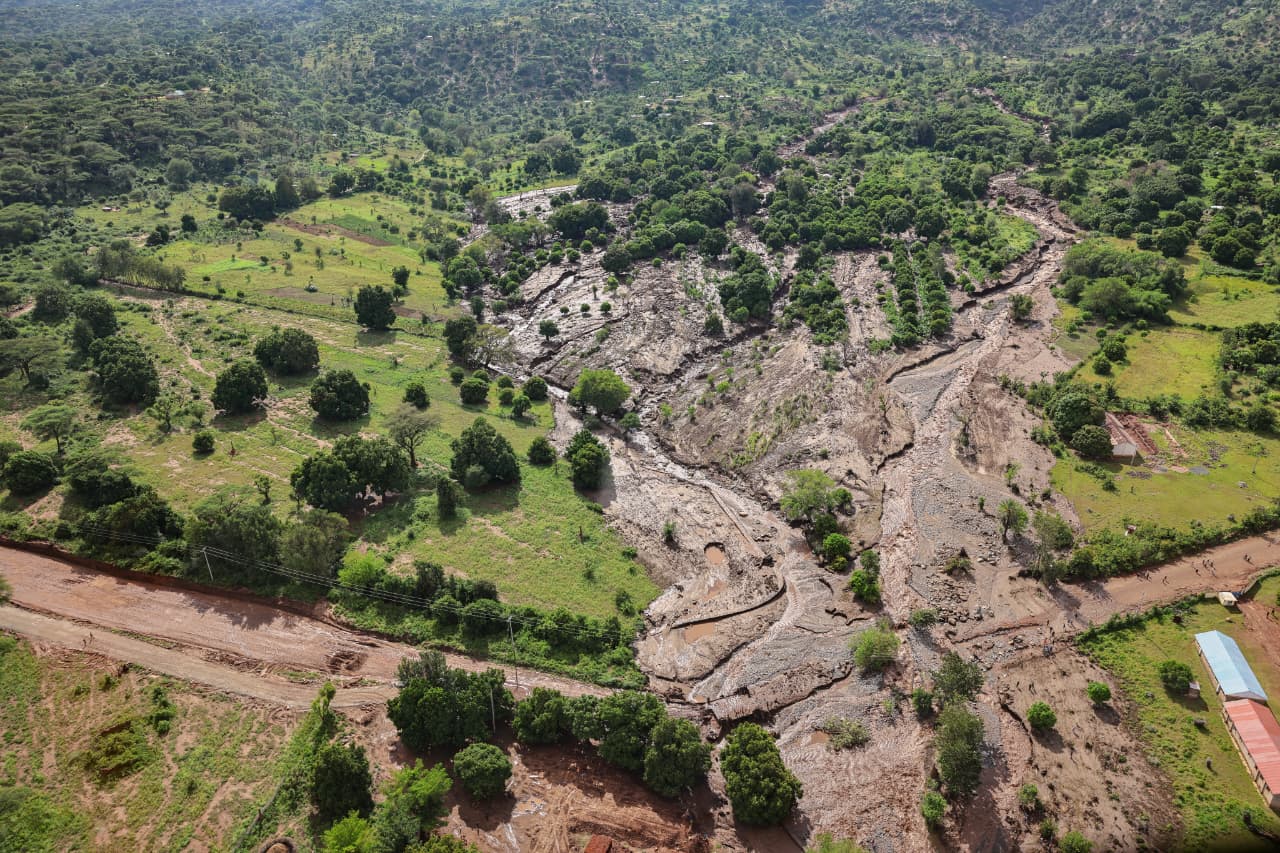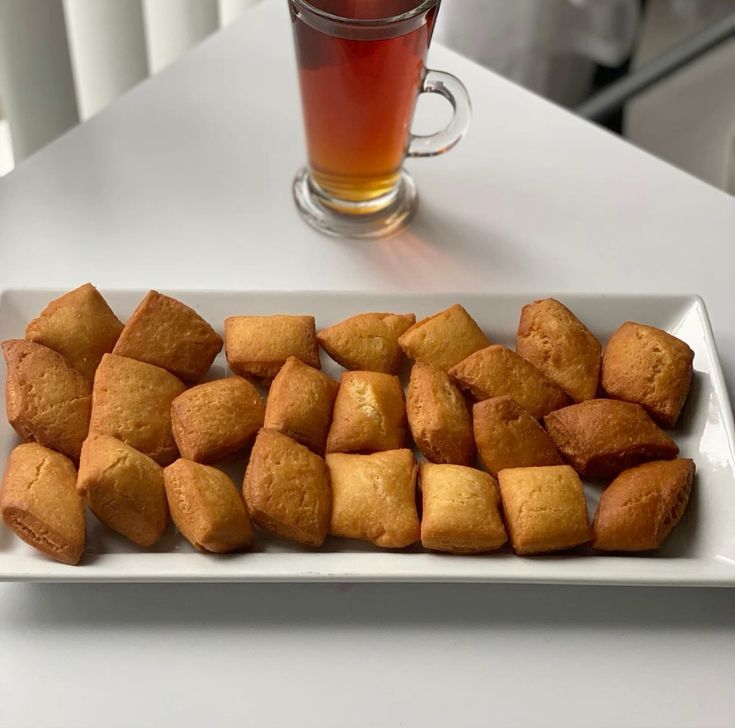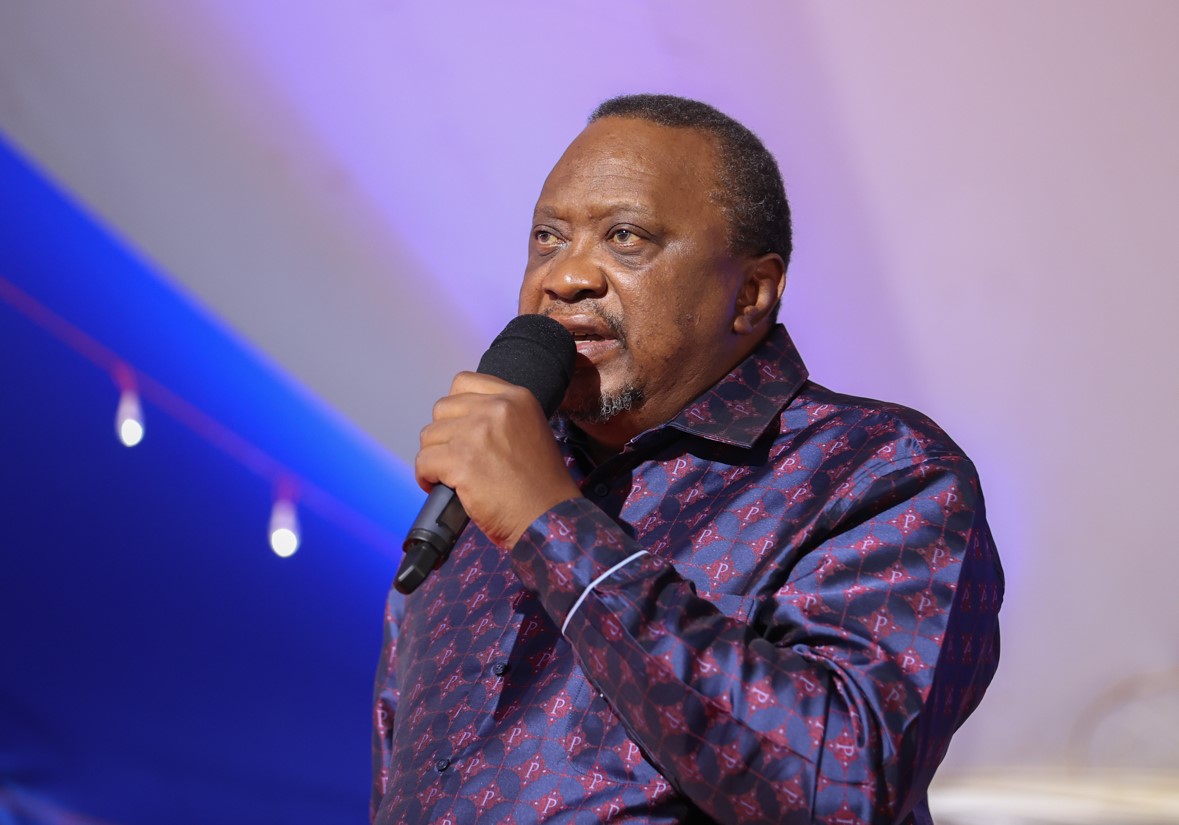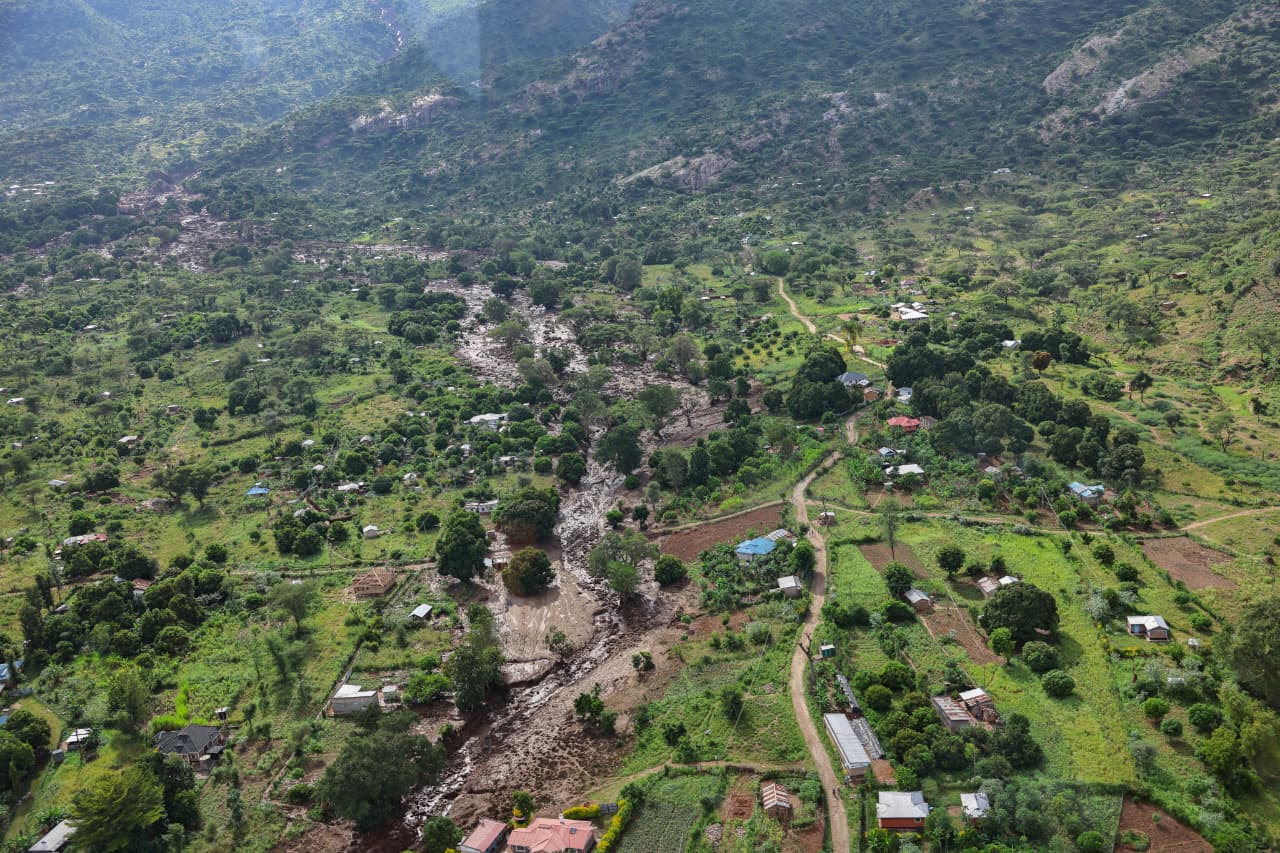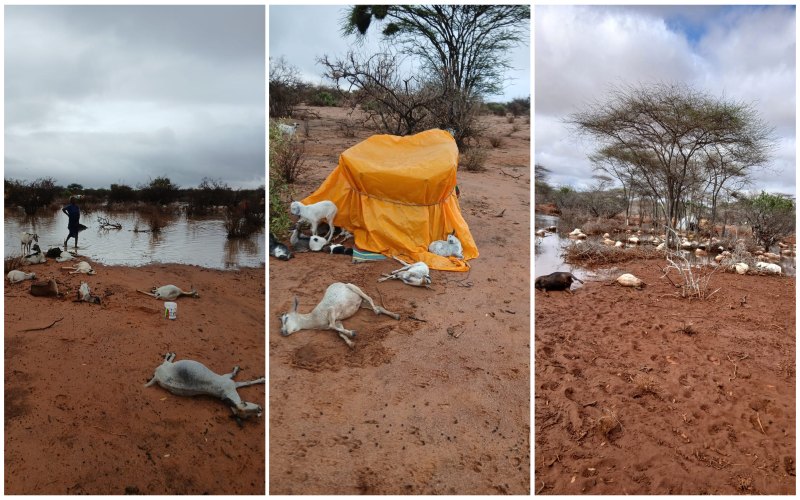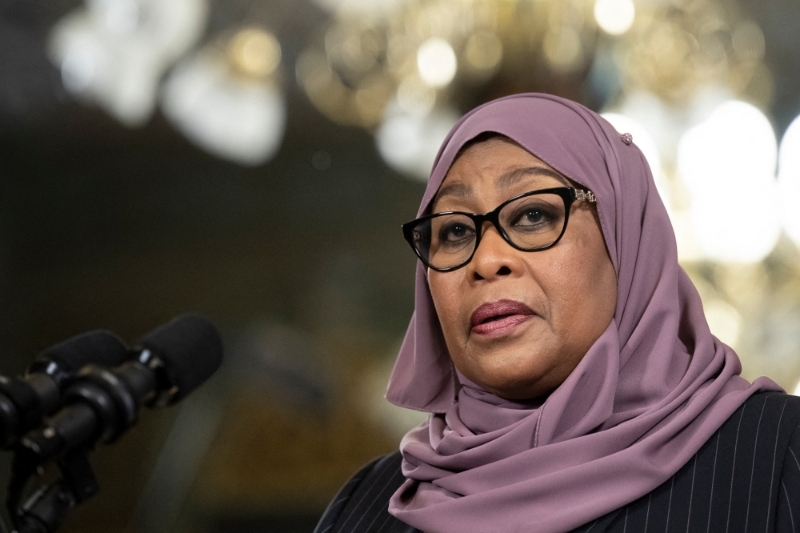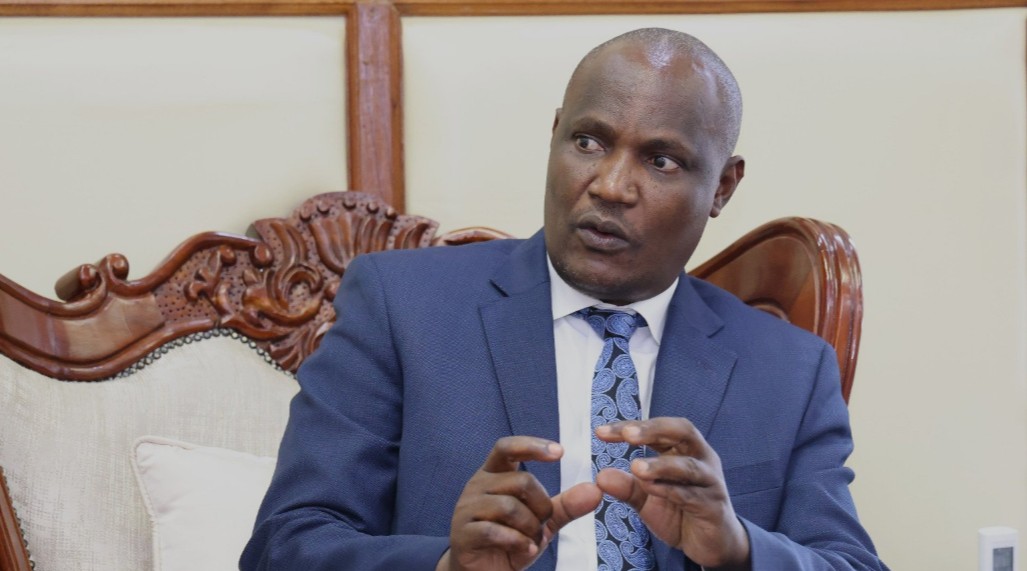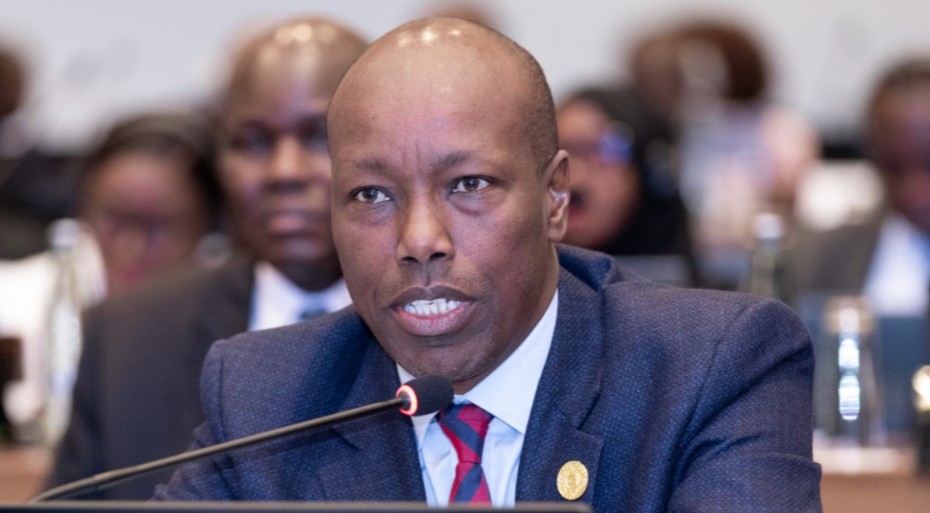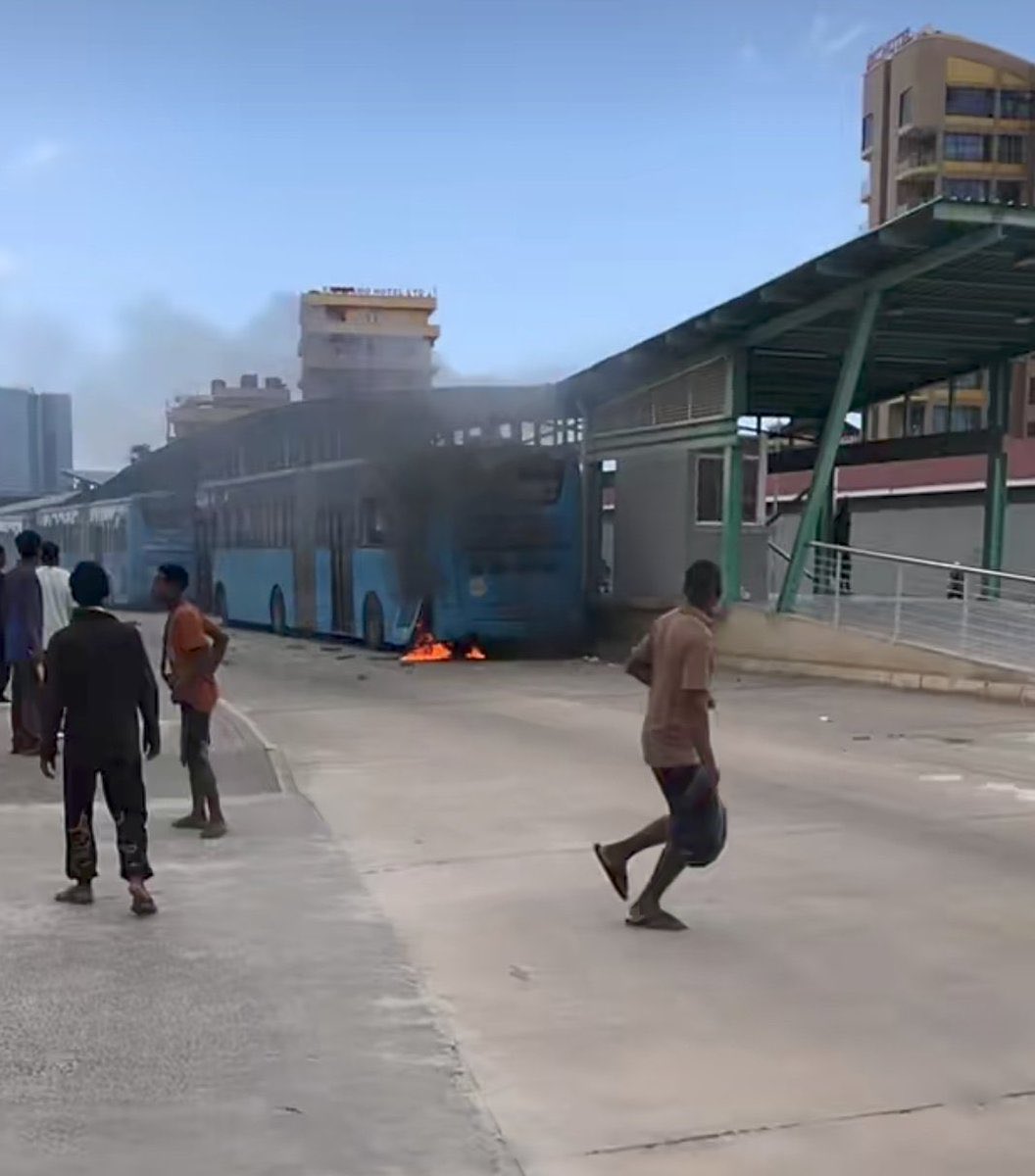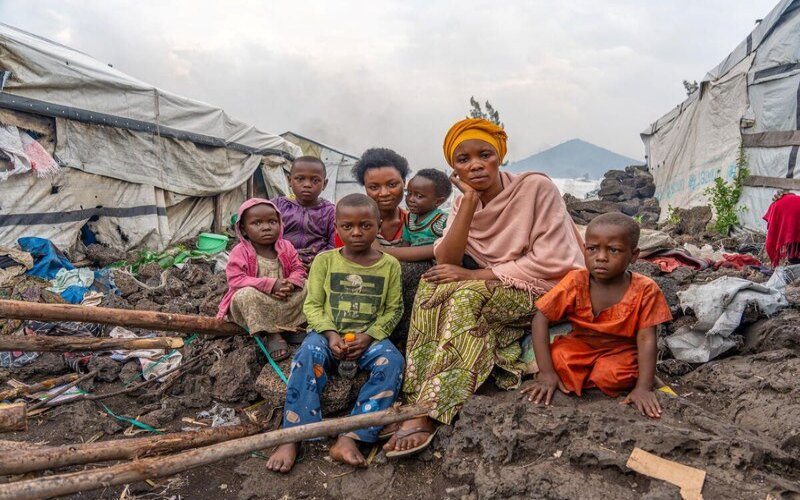Why Tanzania has finally joined other African nations in protest against bad governance
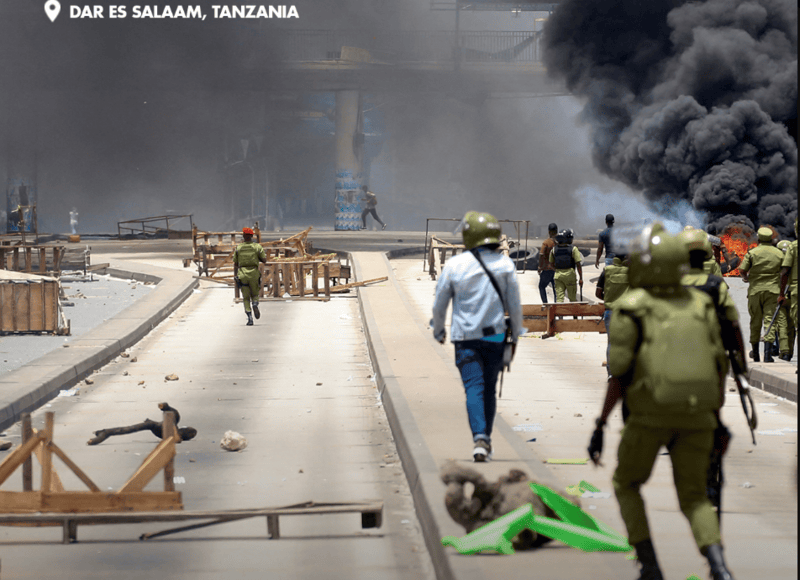
In a rare show of defiance, Tanzanians shocked the East African region as demonstrations erupted on Wednesday. In response, the government shut down the internet, imposed a curfew, and deployed the military to the streets.
There are few, if any, records of Tanzanian citizens uniting in protest against their government. For decades, the people have been so meek and compliant that the country’s leadership has often praised them for their peace and discipline.
The long-held perception of Tanzania as a peaceful nation free from political turmoil has now been shattered.
More To Read
- SADC calls for calm as Tanzania faces deadly post-election violence
- President Samia Suluhu Hassan receives winner’s certificate as CCM extends grip on power
- ANC cites communication glitch in Tanzania poll absence, stresses solidarity
- Musalia Mudavadi warns Kenyan youth against crossing border for protests
- Canada, Norway, UK condemn post-election violence in Tanzania
- President Samia Suluhu Hassan declared winner of Tanzania election with 98 per cent of vote
That image was torn apart when hundreds of protesters took to the streets following a disputed presidential election.
In a rare show of defiance, Tanzanians shocked the East African region as demonstrations erupted on Wednesday. In response, the government shut down the internet, imposed a curfew, and deployed the military to the streets.
The ruling Chama Cha Mapinduzi (CCM) party, which has held power since independence in 1961, sought to extend its rule in Wednesday’s election. Candidates from the two main opposition parties were barred from contesting.
The incumbent, President Samia Suluhu Hassan, faced 16 contenders from smaller parties, most of whom barely campaigned.
Voter turnout was low, and chaos broke out in the afternoon as protesters burned a bus and a petrol station, attacked police stations, and vandalised polling centres.
Two people, a civilian and a police officer, were killed during Wednesday’s protests, according to Amnesty International. The government has yet to comment on the casualties in the ongoing unrest.
Authorities imposed a curfew in the commercial capital, Dar es Salaam, where most protests had occurred, but demonstrations continued late into the night. Public servants were instructed to work from home on Thursday to limit the movement of non-essential staff.
The Eastleigh Voice spoke exclusively to Nic Cheeseman, a British political scientist and professor of democracy at the University of Birmingham, for his insights on Tanzania’s election.
Cheeseman, who researches democracy, elections, and African politics, said President Samia’s government had undermined its own legitimacy and that of the election by manipulating the process to the point of rendering it a sham.
“Citizens are increasingly unwilling to accept corrupt, repressive, and failing governments, as we saw in Kenya in 2024 and again this year. The extent of rigging tells us that the regime is paranoid and perhaps rightly so that if Tanzanians were given a fair vote, they would quickly remove it from power.”
He added that the administration now faces a deeper crisis: “By completely sabotaging the elections, it has destroyed one of the few opportunities to renew its legitimacy.”
Dr Aikande Kwayu, a social scientist in Tanzania and an honorary research fellow at the Department of Anthropology, University of Wisconsin-Madison, recalled how President Samia began her tenure with lofty promises of reform.
“Her first few months in office were characterised by democratic rhetoric — pledges to meet opposition leaders, to heal the nation, and a warning to the police to stop harassing citizens with trumped-up charges,” said Kwayu.
He noted that there were also commitments to create a more business-friendly environment with less interference from the police and tax authorities.
However, Kwayu explained that the CCM, which has ruled since before independence, has institutionalised a dominant-party state through a combination of coercion, censorship, and clientelism.
“President Samia inherited this political system and the privileges it affords political leaders, but she is also bound by it. After the initial honeymoon phase, the CCM has reverted to type,” he observed.
Top Stories Today
